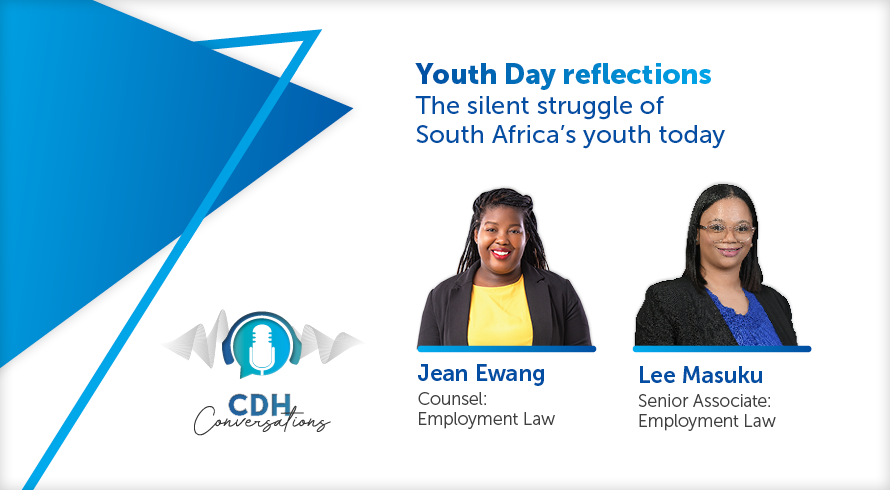To appeal or not to appeal: The consequences of launching a moot appeal
In August 2016, the Pietermaritzburg High Court (the Court of first instance) ordered that the applicant, John Walker Pools (JWP), was evicted from the relevant premises in Ballito, plus costs of the application. The application for leave to appeal to that court was dismissed.
JWP's defence was that there was no unlawful occupation of the premises, and consequently no basis for an order of eviction, because of an alleged lease agreement validly concluded in respect of the relevant premises for the period October 2012 to September 2017.
No request was made to present further evidence on appeal. Accordingly, in assessing the reasonable prospects of success of the applicant's appeal, the SCA could only consider such facts and documents as had been before the High Court.
Acting Judge of Appeal Rodgers crystallised the legal question before the SCA as follows:
"Subject to the question of mootness, the test we must apply is not whether JWP's proposed appeal should succeed, but whether there are reasonable prospects of success in the proposed appeal".
The crux of the mootness in this application for leave to appeal lay in the termination date of the alleged lease agreement, namely September 2017. If leave was to be granted and if a decision was to be made that the applicant was in fact entitled to occupy the premises until the end of September 2017, such a decision would, in any event, be only academic in value and would carry no practical effect because the alleged lease period would in any event have expired by that time.
The only potential effect of such an order could relate to the costs incurred by JWP in the High Court. However, the costs will only be considered in exceptional circumstances, such as if the costs incurred had been very substantial. In the case in question, no such exceptional circumstances existed and therefore this consideration did not have a bearing on the SCA's decision regarding the practical effect of its judgment.
The SCA also traversed the issue of who ought to bear the costs of an application for leave to appeal that is moot in its pragmatic effect. Two situations are distinguished:
(1) where the proposed appeal is "stillborn from the outset;" and
(2) where the proposed appeal becomes moot at a later stage.
In the former instance, Rodgers AJA stated that the applicant will generally be ordered to pay the costs of an application that was already fruitless at the time of institution.
In the latter instance, it was held that:
"litigants and their legal representatives are under a duty, where an appeal or proposed appeal becomes moot during the pendency of appellate proceedings, to contribute to the efficient use of judicial resources by making sensible proposals so that an appellate court's intervention is not needed".
The following factors, amongst others, must be considered in litigants' costs negotiations:
1.1 realistic prospects of success of the appeal;
1.2 extent of the costs already incurred;
1.3 additional costs that will be incurred if appellate proceedings are not swiftly concluded; and
1.4 the size of the appeal record in relation to the time it will likely take the appellate court to make its finding on the merits of the moot appeal.
In the case at hand, the appeal only became moot at the end of September 2017. The application to the SCA was brought in March 2017 and the filing of papers took until May 2017. Substantial costs had already been incurred by the parties. The record was not voluminous, however, the applicant's case had "very bleak prospects on the merits" even if the proposed appeal had not become moot.
Accordingly, JWP was ordered to pay the costs of the application for leave to appeal to the SCA.
It should be noted that JWP only narrowly escaped a punitive costs order against it for effectively buying itself additional time to remain on the premises at Ballito, pending the outcome of its "unmeritorious" application for leave to appeal.
Litigants must carefully consider the practical implications of an appeal before making such an application. In particular, once it is apparent that the matter will, in any event, become moot, parties have a duty to assist the court by negotiating and proposing settlement of the liability for costs.
The information and material published on this website is provided for general purposes only and does not constitute legal advice. We make every effort to ensure that the content is updated regularly and to offer the most current and accurate information. Please consult one of our lawyers on any specific legal problem or matter. We accept no responsibility for any loss or damage, whether direct or consequential, which may arise from reliance on the information contained in these pages. Please refer to our full terms and conditions. Copyright © 2025 Cliffe Dekker Hofmeyr. All rights reserved. For permission to reproduce an article or publication, please contact us cliffedekkerhofmeyr@cdhlegal.com.
Subscribe
We support our clients’ strategic and operational needs by offering innovative, integrated and high quality thought leadership. To stay up to date on the latest legal developments that may potentially impact your business, subscribe to our alerts, seminar and webinar invitations.
Subscribe



